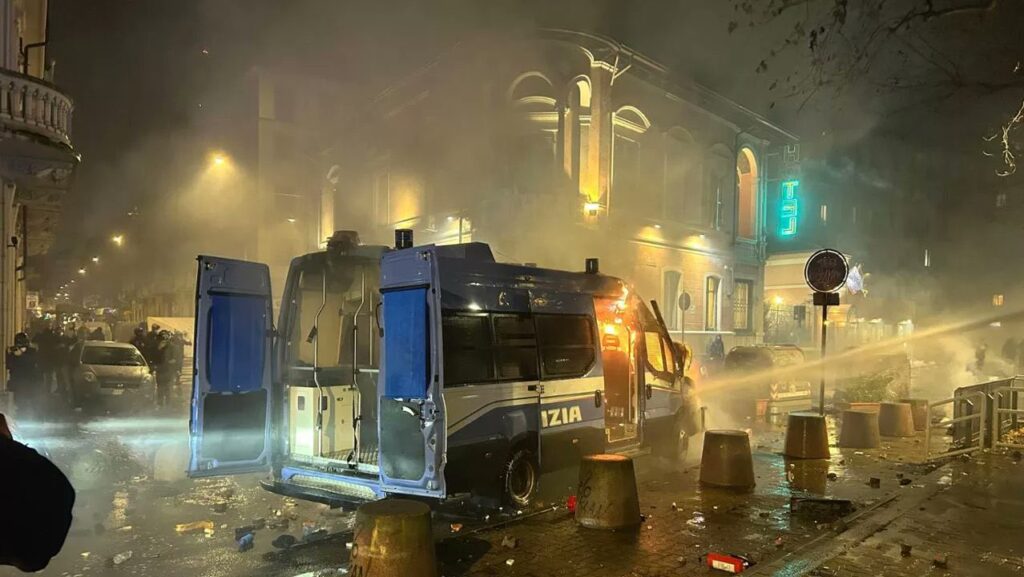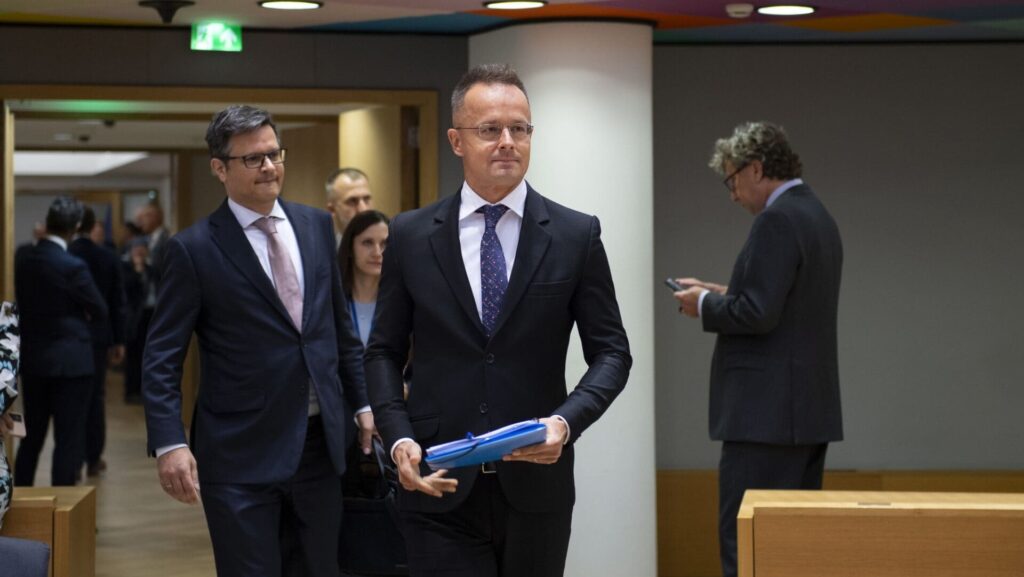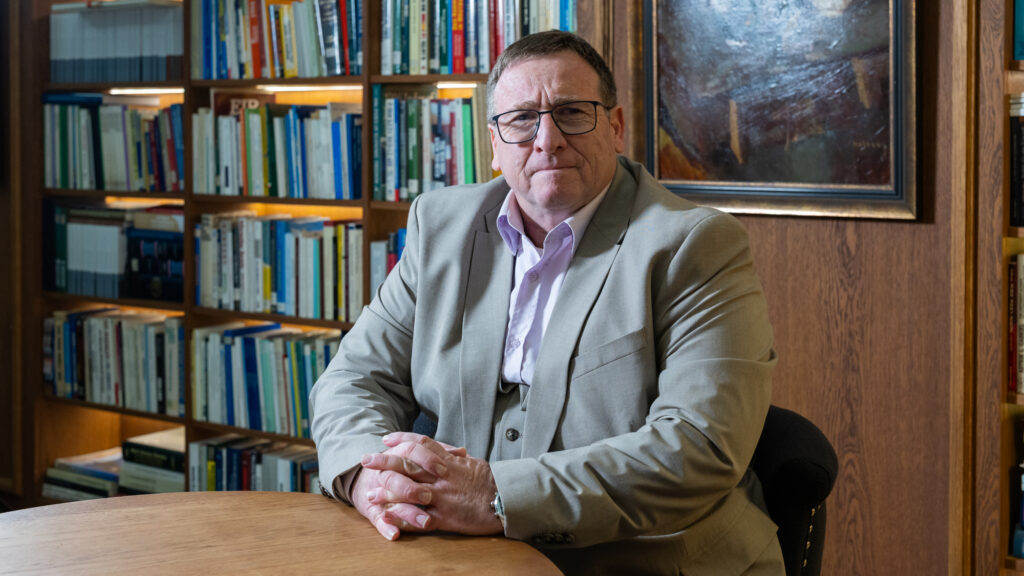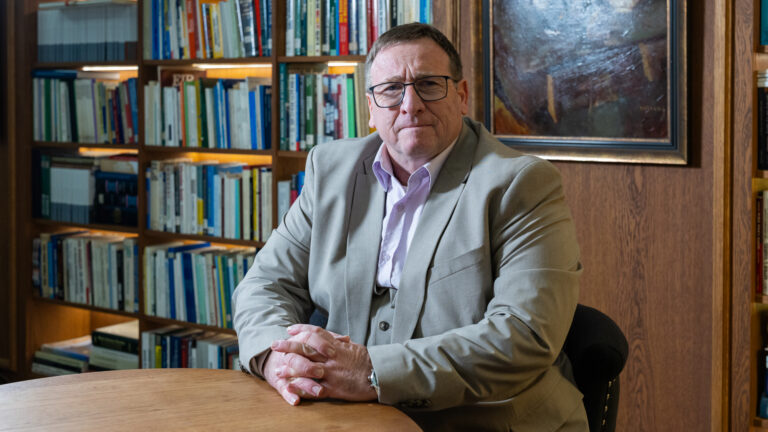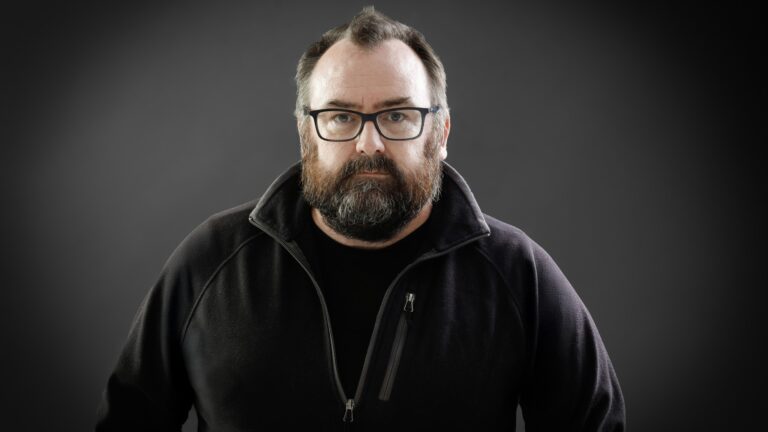Patrick Deneen is a professor of political science at the University of Notre Dame in Indiana, United States. He is also the author of several thought-provoking books, including the New York Times bestseller Why Liberalism Failed—a work even recommended by former US President Barack Obama—and Regime Change: Towards a Postliberal Future, which earned him the status of the intellectual leader of the post-liberal movement. Deneen recently visited Hungary to participate in several discussions during the 5th MCC Feszt in Esztergom, organized by the Mathias Corvinus Collegium, where he was also kind enough to sit down with Hungarian Conservative for a conversation. Topics included how Donald Trump’s second presidency has initiated the elite transformation proposed in his latest hit, who might carry that transformation forward once Trump is gone, and how these developments could affect Europe.
***
Your book, Regime Change: Toward a Postliberal Future, was published in 2023, two years ago. Since then, the world—especially the United States—has undergone a series of changes brought about by Donald Trump’s second term. How do you assess the first months of Trump’s presidency regarding the proposed change in the elite in the United States and in the wider Western world?
I think it’s been quite extraordinary. If you think about what’s happened in six months, you see a sea change in a number of areas that one wouldn’t necessarily have expected. This is especially true in economic policy, which aims to assist ordinary people—particularly those in jobs that for many years were exported or outsourced overseas. There’s now the hope, and even early signs, of increasing manufacturing jobs and various other roles being brought back to the United States.
You also have immigration policies that are deporting illegal migrants, which will benefit working-class people who previously had to compete against them for jobs—thereby driving down wages and reducing opportunities. Then there are the highly publicized critiques—and even efforts to rein in the excesses—of elite universities and institutions, which have long been a source of power for progressive left worldviews. Harvard, for instance, has seen a drop in the number of applicants.
Lastly, there’s a kind of America First foreign policy that understands the burden placed on American servicemen and women since World War II. The hope is to focus more on essential overseas commitments, and to push our allies—many of whom have been reluctant—to take greater responsibility for their own self-defence.
But has the change in elites actually started?
One area where you definitely see change is in who is running the current administration. In Trump’s first term, he and those close to him didn’t yet have a firm grasp on what was needed to shift the direction of the American political order. They relied on a number of people who were not fully aligned with Trump’s vision. And they encountered active resistance—very proudly so—from a deeply embedded bureaucracy that, despite being under the authority of the President, was quite visibly and vocally obstructing his efforts. So we saw a kind of anti-democratic reaction to Trump. But in this second term, Trump came in more aware and experienced, as did his closest advisers. They understood the need to clean house—to sweep the ship clean of the ‘rats’ actively trying to undermine the administration. So at the level of government, yes, we’re certainly seeing a change in the elite.
I also think the fact that Trump won a clear majority in his third run for the presidency means the progressive left can no longer tell itself that he’s merely a fluke of the Electoral College. In 2016, they could say: ‘Hillary Clinton won more votes.’ For eight years, they clung to the belief that Trump wasn’t really popular. But with this last election—where Trump won a decisive majority—there’s now a need to reassess.
Another area where we’re seeing change is in the recognition among elites that they went too far in eliminating alternative views from media, entertainment, universities, and schools. Even progressives are starting to acknowledge the need to reopen the realm of discourse. So I think this is all part of a very promising change—or as some have called it, a ‘vibe shift’.
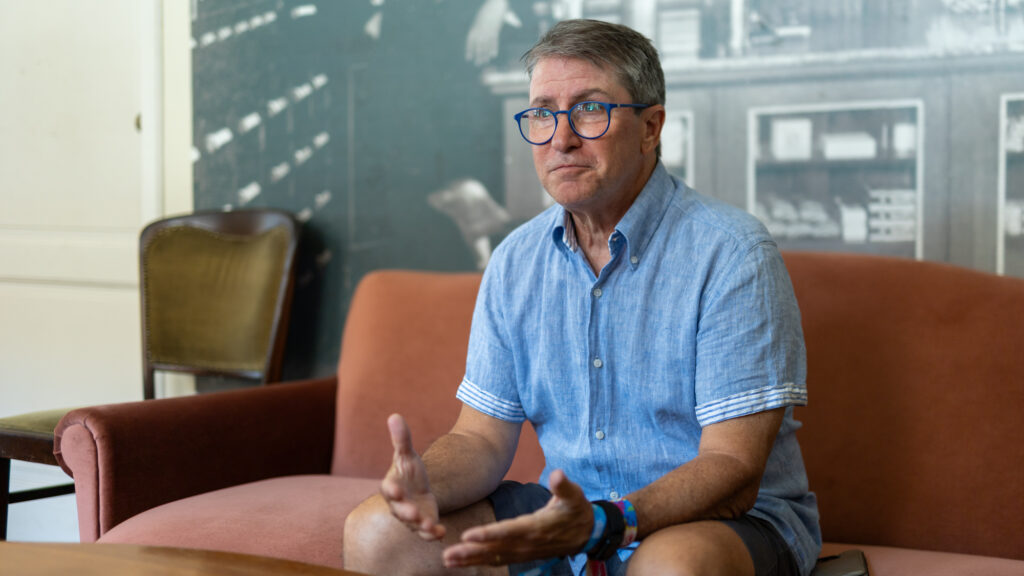
What are the biggest obstacles ahead of this change?
Well, of course, an American president realistically has less than two years to implement a programme. After that, public attention starts turning toward the next election, both presidential and congressional. In the midterms, it’s quite common for the president’s party to lose seats or even control of Congress. Right now, Republicans have a slim majority in the House and a slightly larger—but still slim—majority in the Senate.
So in a year and a half, we might see at least one chamber of Congress flip to the Democrats. If that happens, it will effectively mark the end of Trump’s legislative agenda. Congress would likely resume symbolic politics—trying to impeach him again, perhaps. Now, the President can still act in foreign affairs and via executive orders, but we are arguably in the closing months of the most active phase of Trump’s second term.
Then, of course, after the 2026 midterms, attention will immediately shift to the 2028 presidential race. For the first time in three cycles, people won’t be talking about whether Trump will run. We’ll be talking about JD Vance. The Democrats will also have to go through a contentious nomination process—between the far-left and the more moderate factions. And the Republicans may field other candidates as well.
So, the short answer is that the biggest obstacle facing Donald Trump may not be the other party. It’s that his time is almost up.
I’m glad you’ve mentioned JD Vance—someone you’ve referenced repeatedly in your articles as the perfect example of a conservative ‘aristopopulist’ elite replacing the liberal-managerial elite. Why do you think he’s the right man for that job?
There are a couple of reasons why I think JD Vance is particularly well-suited to become the heir of this change in American conservatism.
American conservatism in recent decades was shaped in the shadow of the Cold War—especially fears of totalitarianism from the Soviet Union abroad and socialism at home. That produced a deep mistrust of government. The mantra of conservatives became ‘government is the problem’—and that it needed to be pared back or even eliminated.
You still see this in the effort to slash bureaucracy. But Vance is different. He’s the first major political figure not shaped by the Cold War; he is a non-boomer. His concerns stem from the destruction his community experienced due to globalization and outsourcing. He grew up in the Midwest and witnessed firsthand the social devastation it caused.
He believes government can be a force for good—if used wisely. That includes economic policy that protects American jobs and supports families. He’s even been inspired by Hungary’s family policy. Unlike older Republicans who believed that simply getting the government out of the way would lead people to get married and have kids, JD Vance recognizes that this assumption is false. Today’s young people face enormous debt, unaffordable housing, and unstable careers. They’re not marrying or having children, and they feel like they’re falling behind. JD understands that good governance and smart use of political power can serve conservative ends—not just market ones.
And who do you see, currently within Republican circles, as figures who could help Vance bring about this transformation?
There is a growing number of figures, both in Congress and in the administration, who are aligned with this vision. One person who could potentially challenge JD for the nomination is Marco Rubio, the current Secretary of State. He shares many of JD’s instincts and positions. Rubio began his political career as a conventional Republican, but he’s evolved—perhaps due to political shifts, but also, I believe, due to reflection on the limits of old conservatism.
There are also younger members of Congress—like Senator Josh Hawley of Missouri—who are part of this shift. I’ve had meetings in recent months with rising political figures from my state of Indiana and elsewhere, many of whom have read my work and are persuaded that the old libertarian brand of Republicanism no longer answers today’s challenges.
So yes, we’re witnessing a generational change. It won’t just be visible in the next nominee, but it will shape the future of the Republican Party long-term.
Finally, we’re starting to see change in the United States. Do you think, or when do you think, Europe might follow?
That’s a difficult question, because even in the US, the change took a long time. If you have a long enough political memory, you’ll recall that many of the arguments Trump made in 2016 were already being made by Pat Buchanan back in 1992. So these ideas have been around for decades. It just took a long time for them to resonate with the public.
So in one sense, change was very slow. But in another, it was incredibly fast—because for 50 years, America seemed to speak and act in one way, and then suddenly, in 2016, everything changed. That could happen in Europe, too.
‘It’s possible that the…shifts in America will soon influence Europe in a different direction’
There are many at this very conference who are trying to push Europe in a less centralized, less liberal-progressive direction. But it’s difficult because of the power Brussels holds over the institutions and political order. Still, we’re seeing a popular groundswell—voters increasingly rejecting what elites call ‘European values’. So yes, the change might feel slow—until it happens very fast.
Another factor is that while Trump is unpopular in Europe, America still has immense influence. It was America that pushed Europe in a progressive direction for decades. And it’s possible that the cultural, political, and intellectual shifts in America will soon influence Europe in a different direction.
What now seems unthinkable—concern for national sovereignty, limits on immigration, emphasis on self-defence—could very soon become normal. What was taboo a year ago may soon be mainstream political discourse. And when that happens, genuine political alternatives will finally be on the table for the peoples of Europe.
Related articles:


